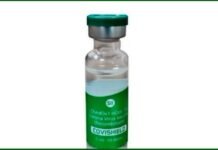
London: In a landmark legal acknowledgment, AstraZeneca, the UK-based pharmaceutical giant, has for the first time admitted in a court of law that its COVID-19 vaccine is capable of causing Thrombosis with Thrombocytopenia Syndrome (TTS), a rare blood clotting condition. This admission came to light during a class action lawsuit involving numerous families who claim to have suffered severe health issues, including fatalities, as a result of the vaccine.
The case, which has garnered significant media attention, could potentially lead to compensation claims amounting to as much as 20 million pounds. The legal document, submitted to a UK court in February, explicitly states that the AstraZeneca vaccine can induce TTS, characterized by the formation of blood clots along with a decreased platelet count, essential for blood clotting.
Previously identified as vaccine-induced immune thrombotic thrombocytopenia (VITT), this extremely rare side effect has been recognized as a potential risk associated with the vaccine. The company’s court admission is pivotal as it marks the first instance of AstraZeneca acknowledging this risk in a legal setting, potentially setting a precedent for individual settlements.
This development represents a significant shift from AstraZeneca’s earlier stance and could impose a financial burden on UK taxpayers due to an indemnity agreement the company secured with the government at the height of the pandemic. This deal was designed to fast-track vaccine production while shielding the company from legal repercussions.

Following this revelation, AstraZeneca, which reported revenues surpassing 10 billion pounds in the first quarter of 2024, has expressed sympathy for those adversely affected by the vaccine and has reiterated its dedication to patient safety. The company emphasized the rigorous safety standards upheld by regulatory authorities and maintained that the vaccine’s safety profile remains robust.






















































